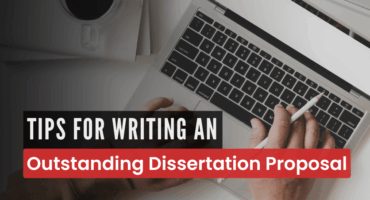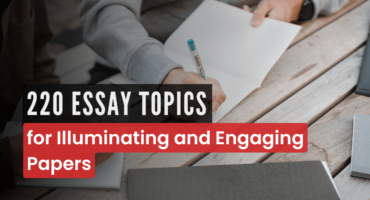EDU301 - Culture, Diversity and Educational achievement
Reflective Paper
In “Culture, Diversity and Educational achievement” unit I learned about various kinds of cultural differences. There is a discussion on a set of inclusive learning principles and polices that are in the perspective of education. It also scrutinized the factors on different level such as national, international and social level that added to the acceptance and enactment of policy recommendations in the light of culture, diversity and educational participation. Moreover, the unit has provided a framework of diversity that can be used to critically reflect linkages with various areas such as culture, gender, disability, age and workplace etc.
This unit emphasis on the connection and linkage among the culture, diversity and participation in education. There are various factors that go in hand with these topics like inclusion, pedagogy, gender expression roles, disabilities, and workplace etc.
Culture and Diversity
Culture is a way of living that retained by group of people and transfers to later generations. If I talk about the country Australia, it comprises of diverse culture or in short, this country is combination of different culture living together. Culture includes language, traditions, lifestyles, religions, cast, creed etc. Culture give shape to our personal growth which in result boost the creativity present within ourselves.
Culture link with the concept of diversity as diversity is the result of combination of multiple cultures with in a country. In order to understand the concept of diversity, we need to look back to our roots on personal level. There are several assumptions and perceptions which we commonly considered in our everyday life and those assumptions and perceptions lead us to the cultural differences and dynamics of diversity. Diversity can be present in any type of cultural group say for example, it may be white people, Asian, African etc. whose member maintains and practices certain cultural practices.
Moreover, Idris Elba, a famous UK actor defined diversity in completely new way such as “Diversity in the modern world is more than just skin color. It’s gender, age, disability, sexual orientation, social background, and most important of all, diversity of thought” (Jaafar, 2016). Diversity is the condition where different elements collaborate with each other and form an environment where everyone live freely irrespective of religion, cast, creed, language, background etc. (Omeri & Raymond, 2009).
Participation in education and role of inclusive education
Another discussed area in this unit is the participation in education. All over the world, education systems are dealing with number of challenges in terms of providing fair education to children and young people. This leads to the emergence of increased attention towards the idea of inclusive education. However, there are multiple views on the concept of inclusion, as to what inclusion entails. In some countries, inclusion is simply a practice to serve a disable children and help then to get entry in the education system. Broadly, it shows the diverse nature of learning in terms of educational support. There is a viewpoint that inclusive education is a good way of showing support with the needy students and also aim to eradicate the exclusion from the diverse nature of behavior that give birth to the negative attitudes. It therefore begins with the belief that education is a fundamental human right and basis for the unbiased society.
Therefore, it is the duty of education system to safeguard the right to education. Diversity give support to the inclusive education in a way that it promote flexible teaching methodologies with innovative and creative ideas with responsive and child-friendly environments. Inclusive education also work for the betterment of the students’ deficiencies and help to provide them quality of life. In the world of today, there is dire need to safeguard right education and appropriate training programs for the improvement in the participation rate of education (Florian, 2014). It is observed that inclusive education is a process of establishing a platform for the learners in the society (Florian, 2014).
Inclusion is one way to support the educational policies and practices that are essential for the growth of education system. Moreover, there are number of ways in which the progress in inclusive education can bring wider changes in the education system or in society as a whole. For example, inclusive education can be part of a reform of the education system as a whole. In various countries, inclusive education has been the principal component of a wider reform to enhance the system’s efficiency and effectiveness. Therefore, it has been observed as a means of improving the quality of education for all learners and not just those with disabilities or special educational needs. This is important to avoid the possibility of inclusion being seen as something that does not impact the broader education system and therefore does not deserve national energies and resources.
The switch to inclusive learning is not just a change in approach. It shows a theoretical trend in a light of clear direction. There is a wide range of international conferences, declarations, conventions, issues and reports relevant to inclusive education. However, international declarations have to be interpreted in the light of local circumstances and several countries think it useful to express the principles that guide their own transition to higher level of inclusion. This unit further emphasizes on moving towards more diverse ways of working which requires shifts in attitudes through the mainstream education system, most particularly in schools.
A critical view to policy analysis related to inclusive education
There are diverse ways to arrange, use and transmit knowledge to students in the mainstream education, based on the dominant culture (Rahman, 2013). If I talk about the inclusive education than inclusion in educational policy is a serious issue. International organization such as UNESCO and OECD etc. work on the framework of inclusion in educational settings and basically inclusion is not that much easy as it is seen, it is complex process that is highly variable. The work of Hardy and Woodcock (2015) gives a good insight and critical review on the inclusive policies in the Global, national and local level of jurisdictions that based on the national policy guidelines in the Anglo-American setting generally while Australia, Canada, England and USA particularly. In this regard, Harman (1984) stated that policy is defined as a clear and linear way to recognize and specify the problem, find out the ways to solve that issue and then implement those procedures to resolve the issue. The critical analytical measures of policy assert that particular type of policy manuscripts, circumstances and implications are highly political in nature and detect how key issues are conceived and enforced in policy to determine those underprivileged or vulnerable segments of the population (Hardy & Woodcock, 2015; Taylor, Rizvi, Lingard, & Henry, 1997). These types of approaches play a central role in the development and execution of the respective policies. Moreover, policy making is not an easy task as there can be both type of consequences i.e. unintended and intended (Taylor et al. 1997, 17). Therefore, these insights guided knowledge of policy provisions in educational settings and in general, means of comprehending education policy also includes highly globalized contexts (Hardy & Woodcock, 2015; Rizvi & Lingard, 2010). There are several conferences and issues that focuse on the practices and policies implementing in the specific setting of school that influenced the local setting of that particular context. Few examples are “The World Conference on Education for All” (1990) held in Thailand, the “1990 World Declaration on Education for All”, “Making inclusive education happen: Ideas for sustainable change” (2009) held in New Zealand which highlighted the critical analysis on inclusion and policy implementation on the local and global level with children’s experiences and teaching pedagogy (Cologon, 2019; Morton, Higgins, MacArthur & Phillips, 2013).
Read More
It is therefore necessary to understand the context of policy that aimed towards better inclusive educational practices. In particular, systematic attention and more comprehensive criticism of how particular policy texts abstractly construct notions of inclusion in global, national and local settings make sense of whether and how values inclusion works in current environment (Hardy & Woodcock, 2015).
International inclusive educational policies
There is various international inclusive educational policy under multiple international bodies, to name a few are the “Salamanca Agreement” (1994) by UNESCO. This was an agreement among 23 international and 92 government organizations and its motive is to support and promote the inclusive education with the focus on students’ enrollment in the schools. Another policy titled as “UNESCO Policy Guidelines on Inclusion in Education” (2009) which states that not only students should enroll in the schools but also schools needs toe be operationalize in the inclusive setting that enhances the scope of the previous policies and cater students’ needs in better way. In addition, OECD, the best in the area of International Student Assessment tests, also develop several inclusive educational policies such as “Inclusive Education at Work: Students with Disabilities in Mainstream Schools” (1999) and “Equity and Quality in Education: Supporting Disadvantaged Students and Schools” (2012). The focus of OECD is to promote education that in result will benefit the economic and social wellbeing of the society around the globe.
National inclusive educational policies
In the perspective of national level, there are many countries that develop policies nationally and promote the inclusive education. Few examples are as follows:
- Australia is a country of multilingual people which consider education as a basic necessity for all but still there are certain demarcations in the educational policies of the Australia like there is a policy known as “2010–2020 National Disability Strategy” (Commonwealth of Australia 2011) which stated that there is need to increase the enrollment of disable students in the schools.
- Canada is a country which experience diversity in its all means, has divided the responsibilities of the country and its provinces. Generally, the provinces are responsible for the implementation of educational policies of its respective community. But on national level, there are few generic educational policies such as “Inclusive Policy and Practice in Education: Best Practices for Students with Disabilities” (2004). This indicates that Canada provide some privilege to students with disabilities than other group of the students.
- In England, there is policy known as “Inclusive Schooling: Children with Special Educational Needs” (2001), that stated the inclusion of education in the school setting in the context of England.
- USA has a dedicated and separate educational policy framework design for all level. Few policies of USA are “Education and Inclusion in the United States: An Overview”, “A Blueprint for Reform: The Reauthorization of the Elementary and Secondary Education Act (2010) and “Individuals with Disabilities Education Act”. The focus of USA is to provide equal educational opportunities to all the students.
In the sight of inclusion, there is no any distinction among the students (eligible or ineligible) for inclusion, inclusion is for everyone. Another necessary thing is that it is an essential for inclusive education that the education of teachers should be fully inclusive in nature otherwise, the respected teachers are unable to teach inclusive education to students in proper way (Cologon, 2019). As, there are various evidences that inclusive education results in better quality of education for both normal student and disable students (Cologon, 2019).
Barriers to inclusion
Inclusive education has been criticized because it cannot deliver that which it promises to do so. Nonetheless, promises about inclusive education that are not to be fulfilled what they actually offer and instead different type of exclusion such as micro and macro are presented in such a way that it seem as a inclusion. This is a serious issue with the inclusive education and charge a very high cost (Cologon, 2019).
Students and their families shows a distinctive way of experiences and it is generally observed that policies related to inclusion is not enough to save from exclusion, there is a need to take quick actions by professionals like teachers and concern communities in order to support inclusion and develop partnerships with the families of the students that in result reduce and eliminate the risk of exclusion. Moreover, families of the students with disabilities faces more serious challenges in terms of protection of the inclusive education as they are highly resistance in this regards. It is not necessary that if the student enters the gate of the school then he/she must be welcome in a good way to the inclusive education system, there are several students who face discouraging behavior in the school or by the teachers which in result shutter their self-confidence and students go in the state of distress. These are not the example of inclusive education which students and their families perceive, these are the behavior which generated due to the exclusion.
These types of misunderstandings of inclusion with exclusion are considered as great barrier to the realization of the actual and real form of inclusive education. Therefore, learning and participation of students in education hinder when they experience barriers (Booth & Ainscow, 2011). In addition, it is not necessary that barriers are only present within the premises of the school but it may be present outside the school like in families and communities from where students belong and in the policies of national and international level (Booth & Ainscow, 2011).
Many major advocates of the inclusive education show ableist attitudes that discourages students many students who experience disabilities. These type of negative attitudes are also key barrier in the way of inclusive education. Literature on inclusive education shows that role of teachers is equally important as confident teacher with good competency in inclusive education provides a positive support to the diverse group of students. In this regard, the environment and culture of an education setting also contributes a lot in the learning of students (Kasa-Hendrickson & Kluth, 2005).
There are also few other concerns that limit the scope of inclusive education such as availability of inadequate resources and information, inappropriate preparation of teachers and fixed course schemes etc. moreover, equal distribution of available resources is also a common barrier in the way of inclusive education, specially a country like Australia. Therefore, there is need of proper planning and policy making that address these barriers and avoid any ableist attitude in the process of inclusive education.
References
Booth, T., & Ainscow, M. (2011). Index for inclusion: Developing learning and participation in schools. Centre for Studies on Inclusive Education (CSIE), Rm 2S203 S Block, Frenchay Campus, Coldharbour Lane, Bristol BS16 1QU, United Kingdom, England (24.50 British pounds).
Cologon, K. (2019). Towards inclusive education: A necessary process of transformation.
Florian, L. (2014). What counts as evidence of inclusive education? European Journal of Special Needs Education, 29(3), 286-294.
Hardy, I., & Woodcock, S. (2015). Inclusive education policies: Discourses of difference, diversity and deficit. International Journal of Inclusive Education, 19(2), 141-164.
Jaafar, A. (2016). Idris Elba Posts Full Text of Powerful Diversity Speech Online. Deadline Hollywood.
Kasa-Hendrickson, C., & Kluth, P. (2005). " We Have to Start with Inclusion and Work it Out as We Go": Purposeful Inclusion for Non-Verbal Students with Autism. International Journal of Whole Schooling, 2(1), 2-14.
Morton, M., Higgins, N., MacArthur, J., & Phillips, H. (2013). Introduction to the special issue–making inclusive education happen: Ideas for sustainable change.
Omeri, A., & Raymond, L. (2009). Diversity in the context of multicultural Australia: Implications for nursing practice. Contexts of nursing: An introduction.
Rahman, K. (2013). Belonging and learning to belong in school: the implications of the hidden curriculum for indigenous students. Discourse: Studies in the Cultural Politics of Education, 34(5), 660-672.
Rizvi, F., & Lingard, B. (2009). Globalizing education policy. Routledge.
Taylor, S., F. Rizvi, B. Lingard, & M. Henry. 1997. Educational Policy and the Politics of Change. London: Routledge.










